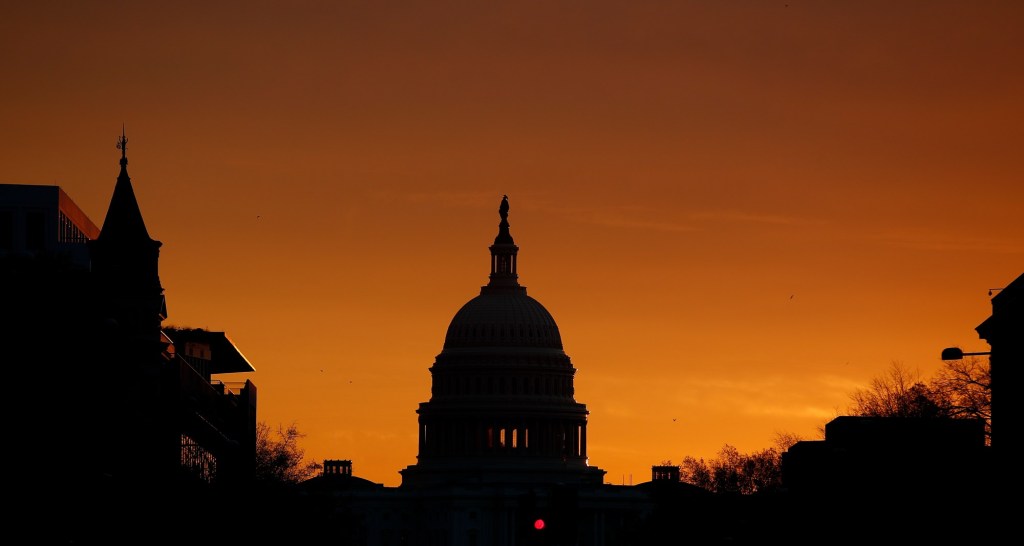
In J.R.R. Tolkien’s The Lord of the Rings, the One Ring is no mere trinket. Forged in the fires of Mount Doom by the Dark Lord Sauron, it promises power beyond imagination—to rule, to shape, to control. Yet, its nature is singular: it can only serve evil. Even those with noble intentions, like Boromir, who dream of wielding it to protect their people, fail to grasp its truth. The Ring twists every ambition, every good intention, into tyranny and ruin. Today, in Washington, D.C., we see a parallel: politicians wielding the expansive power of big government as if it were their own One Ring, believing they can harness it for good, blind to its inevitable corruption.
The Ring’s allure lies in its promise of control. For Sauron, it was domination over Middle-earth. For well-meaning leaders, it’s the tantalizing vision of a better world—poverty erased, markets tamed, society perfected. In our time, this translates to tariffs, taxes, and regulations, tools politicians brandish with the stated aim of protecting jobs, funding progress, or curbing excess. But just as the Ring bends its bearer to its will, these instruments of big government warp their purpose, eroding the very freedoms they claim to safeguard.
Taxes are sold as a force for good—funding schools, roads, or healthcare. Who could object to that? But the Ring’s lesson is clear: power consolidates. What begins as a modest levy swells into a sprawling system, where bureaucrats decide who pays, who benefits, and who grovels for exemptions. The citizen, once sovereign, becomes a subject, their earnings siphoned not for their own good but for the whims of those in power. The government grows, and with it, the temptation to wield that power for political gain.
Consider tariffs. A politician might argue they level the playing field, push back against “trade imbalance” or will boost domestic production. It sounds noble, like Boromir’s plea to use the Ring against Sauron’s armies. Yet, the reality is darker: tariffs raise costs for consumers, as the government seeks to manipulate the decisions of American consumers. The intent may be pure, but the outcome is a shackle on liberty, a step toward control rather than freedom.
Regulations offer the starkest echo of the Ring’s curse. A law to curb pollution or ensure safety seems a worthy cause—Gandalf himself might approve. Yet, the machinery of enforcement multiplies, strangling small businesses, favoring connected elites, and burying individuals under red tape. The noble goal twists into a web of control, where compliance trumps creativity, and the state’s reach deepens into every corner of life. Like the Ring, what starts as a tool for good becomes a master of its own.
In Tolkien’s tale, the wise reject the Ring. Gandalf and Galadriel, offered its power, recoil, knowing it would corrupt even their virtuous hearts. Contrast this with Washington, where politicians clamor for the levers of government, convinced their vision justifies the means. They miss the fundamental truth: big government, like the One Ring, is inherently evil—not because of its wielders, but because of its nature. It centralizes power, diminishes the individual, and thrives on coercion. Liberty, the beating heart of a free people, withers under its weight.
The Founding Fathers understood this. They forged a system of limited government, a bulwark against the seductive pull of control. Today’s leaders, however, see that restraint as an obstacle, not a virtue. They grasp for their Ring, heedless of its cost. But as Frodo’s journey teaches us, the only path to salvation is to cast the Ring into the fire—to dismantle the mechanisms of overreach and restore power to the people.
In Middle-earth, the Ring’s destruction freed the world. In America, rejecting the false promise of big government could do the same. The choice is ours: wield the Ring and fall, or destroy it and rise.
Jon Fleischman is the Publisher of the FlashReport.org website on California politics, and Treasurer of the Republican Party of Orange County
Originally Published:



